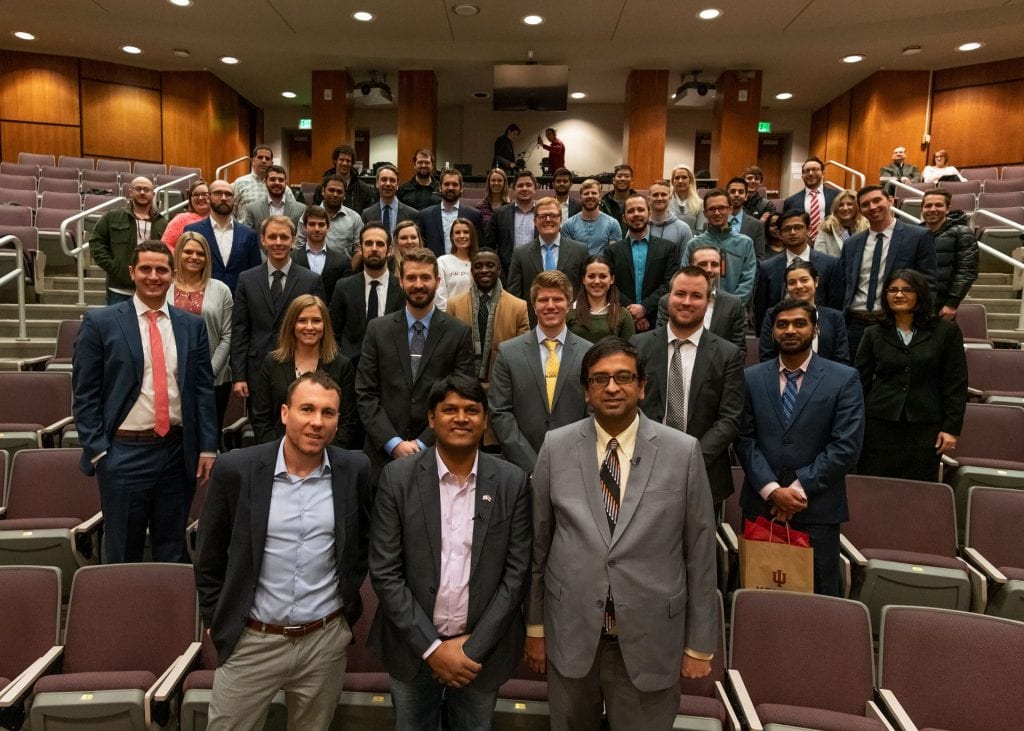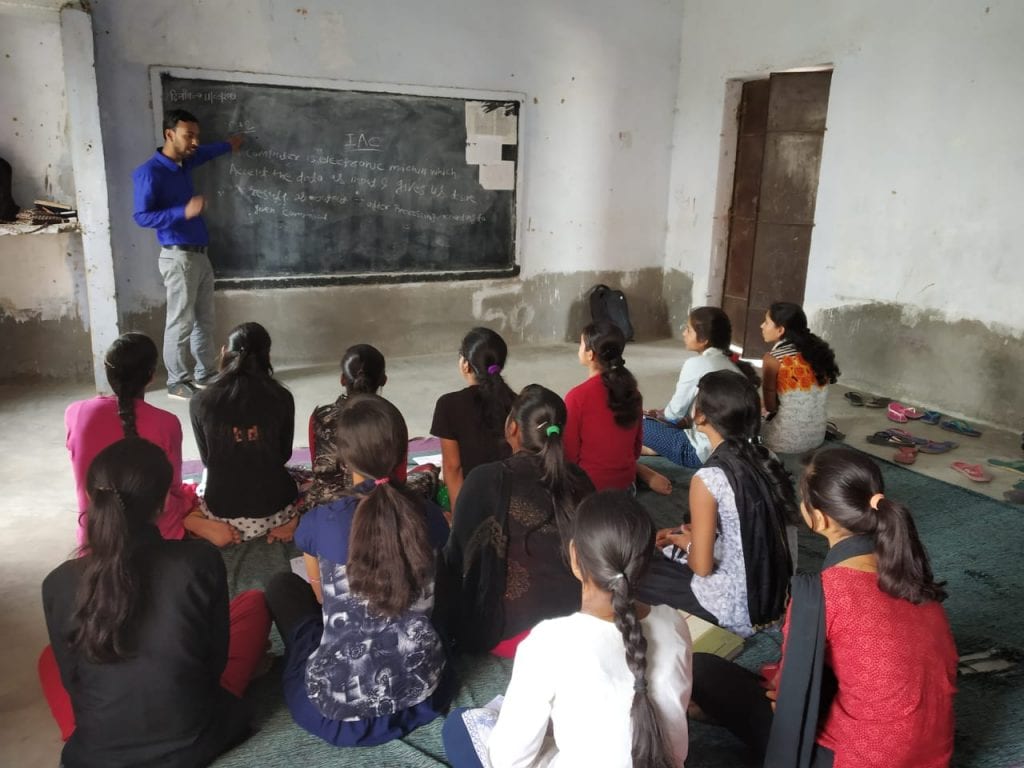
BLOOMINGTON, Ind. – Connections that 100 Kelley Direct online MBA students hoped to make during their recent Kelley Connect Week went far beyond the usual networking opportunities.
If they are indeed successful, their efforts will help empower young women in rural areas of Bihar province, India, and perhaps beyond.
Kshitiz Anand, an Indiana University alumnus (front-row, center in above image), returned to Bloomington in early March to share with Kelley Direct students the vision that he and his wife Vatsala have been working to achieve since 2013 through the Happy Horizons Trust.
The non-governmental organization is trying to improve the quality of education in rural India, particularly for young women who often are discouraged from pursuing more than a basic education. It has about 40 employees (full-time and part-time) and works with about 25,000 students at 40 schools in Bihar through its different programs.
With about 315 million students, the Indian educational system is among the largest in the world. However, there is a shortage of teachers in rural areas of India, which affects student development, and many children in rural areas are first-generation students. Poor educational quality leads to illiteracy.
Happy Horizons Trust has created programs that help with the students’ cognitive, motor, social and creative skills. For example, pictured below is an internet awareness course being taught to 20 young women in the village of Kahra, to help them better understand digital technology and its applications.
Discussions in India between Anand and Ramesh Venkataraman, chair of Kelley Direct MBA and MS programs and the John R. Gibbs Professor of information systems, led to the live case project that Kelley Direct students worked on during Kelley Connect Week. Will Geoghegan, clinical assistant professor of management and entrepreneurship, wrote the case.
“Working on a case that has a social component can be hugely beneficial to our students in order to help give them a flavor of organizational purposes outside of the more typical profit maximization agenda,” Geoghegan said.
“Stakeholder centric models are becoming more important and basis of success in modern business management,” he added. “To work with an NGO such as Happy Horizons Trust helps to give the students an extreme example of this that they can directly apply and examine. Also, the students are perhaps a little more motivated to work harder in the knowledge that their efforts are directly benefiting children in need.”
The Kelley Direct students’ goal for week was helping Happy Horizons Trust develop new strategies and a business model that will allow it to become self-sustainable and continue to grow. Because the organization is so small, the input it receives from Kelley’s “amazing students” is invaluable and Anand said many of their suggestions will be implemented.
“This us allows to get a very critical evaluation of our own work, hear what is working and what might be a problem several years down the line,” said Anand, who earned a master’s degree in human computer interaction design from IU in 2009. “Students from the Kelley Direct allow us to see the much larger picture.”
Mustafa Harcar, a Kelley Direct student who leads the automation design and innovation team for Walmart’s supply chain engineering division, said experiences like working on the Happy Horizons case help explain why he chose Kelley over other MBA programs.
“Knowing that Kshitiz and his organization would benefit from our deliverables to add value to the lives of underprivileged children made me our team even more motivated,” Harcar said. “It’s extremely rewarding to have taken part in a project that focuses on both the education of children, and the empowerment of young women.
“It was a very enriching experience working on the Happy Horizons Trust for a noble cause of women empowerment during the International Women’s week,” said Delaware-based student Trapti Chaubey, now at industrial gas company Air Liquide. “It allowed us to stretch our imagination and thinking beyond corporations and businesses into social causes and the fundamental problem of education faced by the rural society in India.”
Harcar and Anand said the live case highlighted the value of understanding cross-cultural communications.
“Working on a cross-cultural project like this provides an additional challenge, one that helps us learn to work in diverse environments,” he said. “With the speed of globalization, these types of learning experiences become even more important to stay ahead in the competitive business environment.”
“Students’ cultural understanding is something that’s going to be more and more critical in the days to come,” Anand said. “It’s good when you have a school that really facilitates these kinds of cross-cultural case studies for students to work on.”
The ties between Happy Horizons Trust and the Kelley School are close and are expected to continue. Last year, Happy Horizons was a client of students in GLOBASE, an immersion course offered by the school’s Full-Time MBA Program.
This is an example of an IU Corps experience.
